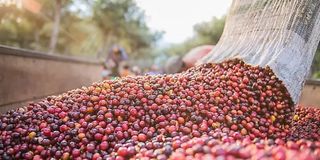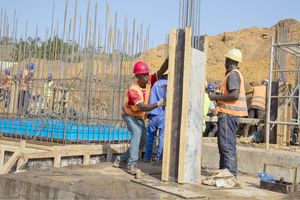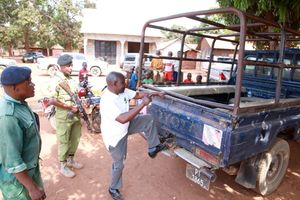Prime
Tanzania keen on target to produce record 300,000 tonnes of coffee

What you need to know:
- TCB said the government’s target is to produce 300,000 tonnes of coffee annually, and that everything was being done to reach the goal despite existence of host of challenges facing the coffee sector
Moshi. The government has reiterated its target of raising annual production of coffee to a record 300,000 metric tonnes by 2025/26.
The Tanzania Coffee Board (TCB) chairperson, Prof Aurelia Kamuzora, said everything was being done to reach the target.
She acknowledged the existence of a host of challenges facing the coffee sector, noting that they should not discourage the farmers.
Prof Kamuzora revealed this at the weekend when she launched the Coffee Expo being held at the national level at the Coffee Curing Plant grounds.
She cited the fall of the coffee price in the world market as having led to decreased production locally, forcing some farmers to abandon the crop.
Other challenges include shortages of inputs, diseases, ageing coffee trees, and decreased soil fertility in some coffee-growing zones.
The impact of climate change and the growing tendency among youth to abandon coffee farming due to low returns have fueled the problem.
For decades, since the 1960s, coffee production in Tanzania has hovered around 50,000 tonne annually, at one time reaching the 60,000 tonne peak.
Production picked up in recent years following a number of reforms, reaching a record 85,000 metric tonnes last year, according to TCB.
“The government’s target is to produce 300,000 metric tonnes by 2025/26,” she said, noting that the target can be attained by, among others, addressing some hurdles.
Prof Kamuzora said the board and allied institutions in the sector would not relent in quality control of the coffee beans in the local market.
She said everything was being done to ensure that the coffee growers were not severely impacted by fluctuating prices in the world market.
“Our goal is to protect the farmer so that he or she is not affected by the price dynamics. The government is keen to see coffee remain a leading cash crop,” she said.
On the inputs, the board chair said the world has turned to organic coffee, which, according to her, is much preferred in the crop’s value chain.
The coffee Expo is held annually to sensitise crop farmers and dealers to the need to promote its cultivation, processing, and marketing.
The acting TCB director general, Francis Kajiru, said the board would continue to give the necessary support to the smallholder farmers.
The farmers would be empowered to observe best practices in the production of coffee so that the beans can fetch higher prices in the world market.
He said coffee production in Tanzania picked up in volume in the past three years because of improved productivity and quality control, among others.
The chair of the Coffee Stakeholders’ Platform, Dennis Mahulu, said one of the strategies on hand is to promote consumption of coffee among the locals. According to him, coffee consumption among Tanzanians accounts for only seven percent of the total output of the beans grown in the country.
Coffee drinking is being promoted in designated cafes and other eating joints within the cities, municipalities, towns, and townships.
Globally, October 1st of each year has been set as an international coffee drinking day, which Tanzania observed for the first time in 2021.
Coffee production in Tanzania has increased since 2019/2020, when the output was 1.25 million bags. The amount surged to 1.35 million bags in 2020/2021. A large share of the crop is Arabica coffee grown using diverse farm systems, including pure stand/smallholder, intercropped and bananas/smallholder, and estate coffee production.






